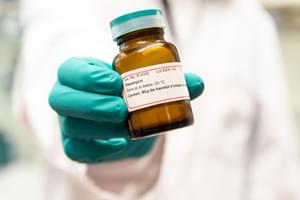Imagine you could take a medicine that prevents the decline that come with age and keeps you healthy. Scientists are trying to find a drug that has these effects. The current most promising anti-ageing drug is Rapamycin, known for its positive effects on life and health span in experimental studies with laboratory animals. To obtain the maximum beneficial effects of the drug, it is often given lifelong. However, even at the low doses used in prevention for age-related decline, negative side effects may occur, and it is always desirable to use the lowest effective dose. A research group at the Max Planck Institute for Biology of Ageing in Cologne, Germany, has now shown in laboratory animals that brief exposure to rapamycin has the same positive effects as lifelong treatment opening new doors for a potential application in humans.
Combatting the negative effects of ageing is increasingly becoming the focus of research scientists. Lifestyle changes can improve health of older people, but alone is not sufficient to prevent the ills of older age. Repurposing existing drugs for ‘geroprotection’ is providing an additional weapon in the prevention of age-related decline. The current most promising anti-ageing drug is rapamycin, a cell growth inhibitor and immunosuppressant that is normally used in cancer therapy and after organ transplantations. “At the doses used clinically, rapamycin can have undesirable side-effects, but for the use of the drug in the prevention of age-related decline, these need to be absent or minimal. Therefore, we wanted to find out when and how long we need to give rapamycin in order to achieve the same effects as lifelong treatment”, explains Dr. Paula Juricic, the leading investigator of the study in the department of Prof.









Comments are closed.